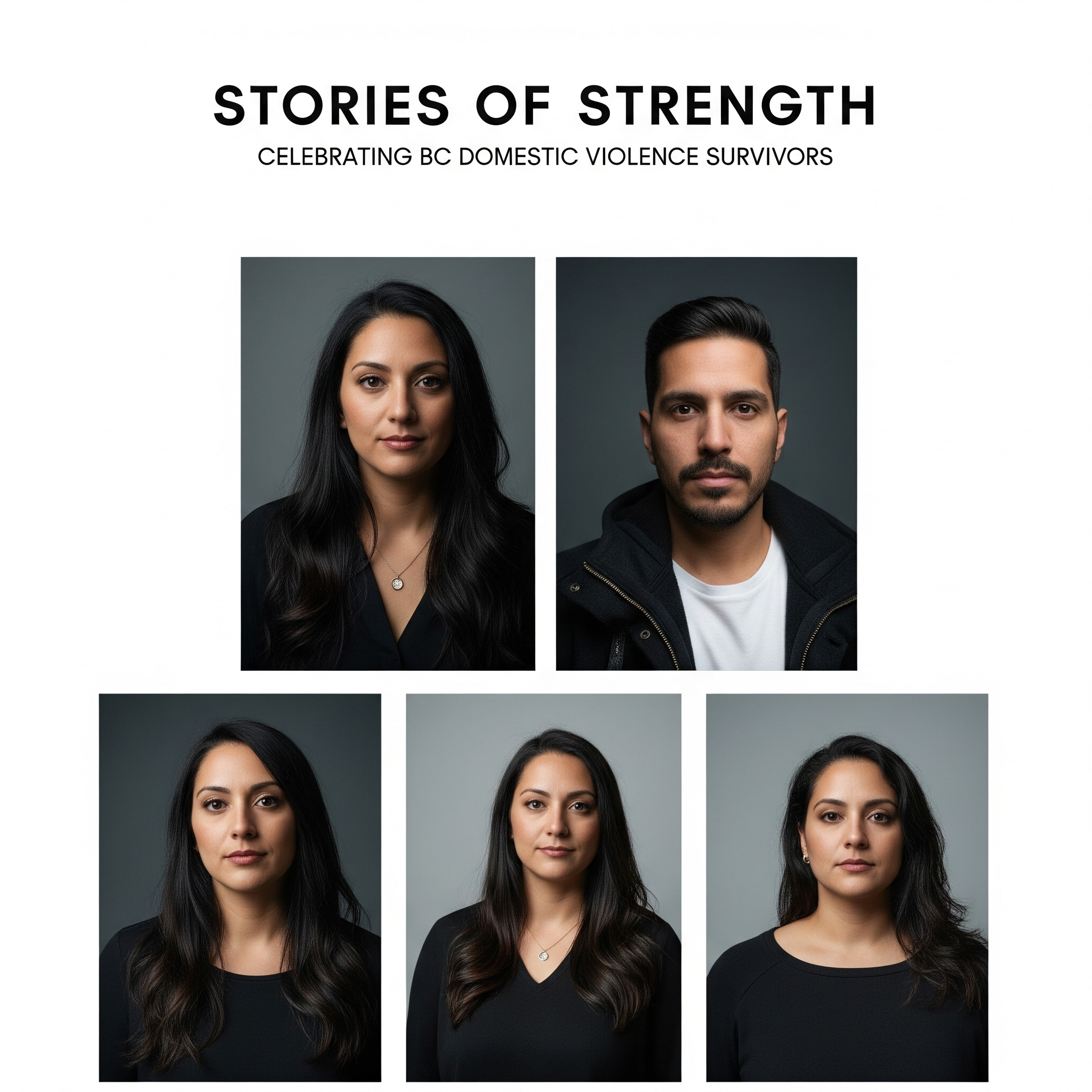📰 Celebrating Strength: Honouring Domestic Violence Survivors in British Columbia
Explore inspiring stories of domestic violence survivors in British Columbia and learn about the vital support systems available to help them heal and thrive.

Across British Columbia, survivors of domestic violence and intimate partner violence (IPV) embody extraordinary courage, resilience, and determination. Their journeys from fear to freedom inspire hope while shining a light on the urgent need for strong support systems and community solidarity.
Honouring survivors is not only about recognizing their bravery — it’s about amplifying their voices, strengthening the networks that make recovery possible, and fostering a province where violence is no longer tolerated.
This post pays tribute to BC’s survivors, highlights the resources that empower recovery, and offers ways the community can help build a violence-free future.
Voices of Resilience: The Power of Survivor Stories
Survivors’ stories, when shared safely and with consent, have the power to:
Break Silence: Speaking out disrupts the stigma and secrecy that often surround abuse.
Empower Others: Survivors who share their journeys inspire others to seek help and envision a path forward.
Foster Empathy: Diverse narratives challenge stereotypes and deepen public understanding of domestic violence.
Across BC, survivors have spoken at rallies, shared testimony at inquiries, and contributed to community storytelling projects. These stories help shift public perception, ensuring violence is seen not as a private matter but a societal crisis requiring collective response.
Key Support Systems in BC
1. Crisis Intervention and Safe Housing
Transition houses and safe homes, supported by BC Housing and local shelters, offer confidential emergency spaces where survivors and children can escape danger.
VictimLink BC (1-800-563-0808) operates 24/7, providing crisis intervention, multilingual support, and referrals across the province.
2. Trauma-Informed Counselling and Therapy
Victim Services Programs deliver individual and group counseling, recognizing the long-term impacts of trauma.
EVA BC (Ending Violence Association of BC) supports specialized therapy programs and peer healing groups tailored to survivors’ needs.
3. Legal Advocacy and Aid
Legal Aid BC provides free or low-cost representation in cases involving protection orders, custody disputes, or criminal proceedings.
Community legal clinics and pro bono networks ensure survivors understand their rights and legal options.
4. Community and Peer Networks
Peer-led support groups help survivors reduce isolation, build solidarity, and share coping strategies.
Non-profits and community centres host survivor circles, workshops, and empowerment programs.
5. Economic Empowerment Programs
Survivors gain independence through job training, career counseling, and financial literacy programs.
Partnerships with local employers and workforce agencies open pathways to stable, long-term employment.
The Power of Safe Storytelling
Storytelling can be a healing and transformative tool when practiced safely. In BC:
Media campaigns amplify survivor voices while safeguarding privacy.
Community storytelling projects, led by local organizations, preserve collective histories and shape policy reform.
Survivor-led initiatives ensure that experiences are not only shared but used to educate, advocate, and inspire change.
Safe storytelling reminds society that behind every statistic is a person with strength, resilience, and hope.
How You Can Support Survivors in BC
Every community member has a role in creating a safer province:
Donate or Volunteer: Support local shelters, crisis lines, and counseling programs with time or financial contributions.
Advocate: Urge policymakers to strengthen funding for shelters, prevention programs, and survivor services.
Educate: Attend or host workshops that teach how to recognize signs of abuse and respond with compassion.
Amplify: Share verified resources, hotline numbers, and survivor-approved stories on social media to increase awareness.
Conclusion
Celebrating survivors of domestic violence in British Columbia means honouring their bravery, amplifying their voices, and strengthening the systems that support them. From safe housing to counseling, from legal aid to community empowerment, every piece of the support network matters.
By valuing survivor experiences and committing to long-term prevention and systemic reform, BC can build a province where healing is possible, safety is guaranteed, and violence has no place in our future.
FAQs
1. Why is it important to celebrate survivors of domestic violence?
Because it honours their resilience, challenges stigma, and inspires others to seek help.
2. What resources exist for survivors in BC?
Transition houses, VictimLink BC, counseling services, legal aid, peer support groups, and economic empowerment programs.
3. How does storytelling help survivors?
It breaks silence, educates the public, and influences policy, while providing survivors a platform for healing and advocacy.
4. How can communities support survivors?
By donating, volunteering, advocating for policy reform, and spreading awareness of resources.
5. What is VictimLink BC?
A 24/7 multilingual crisis line offering support, information, and referrals to shelters and services across BC.
